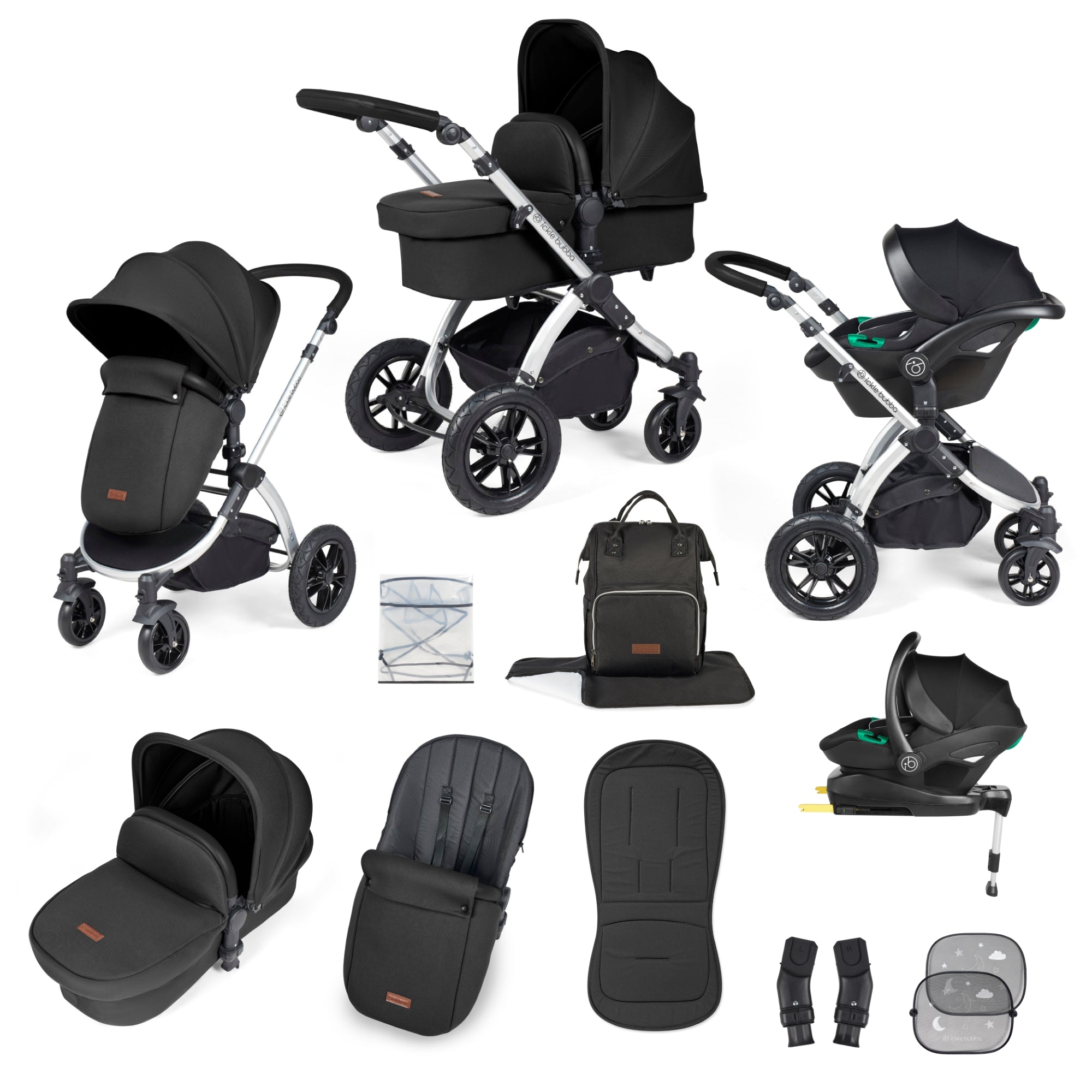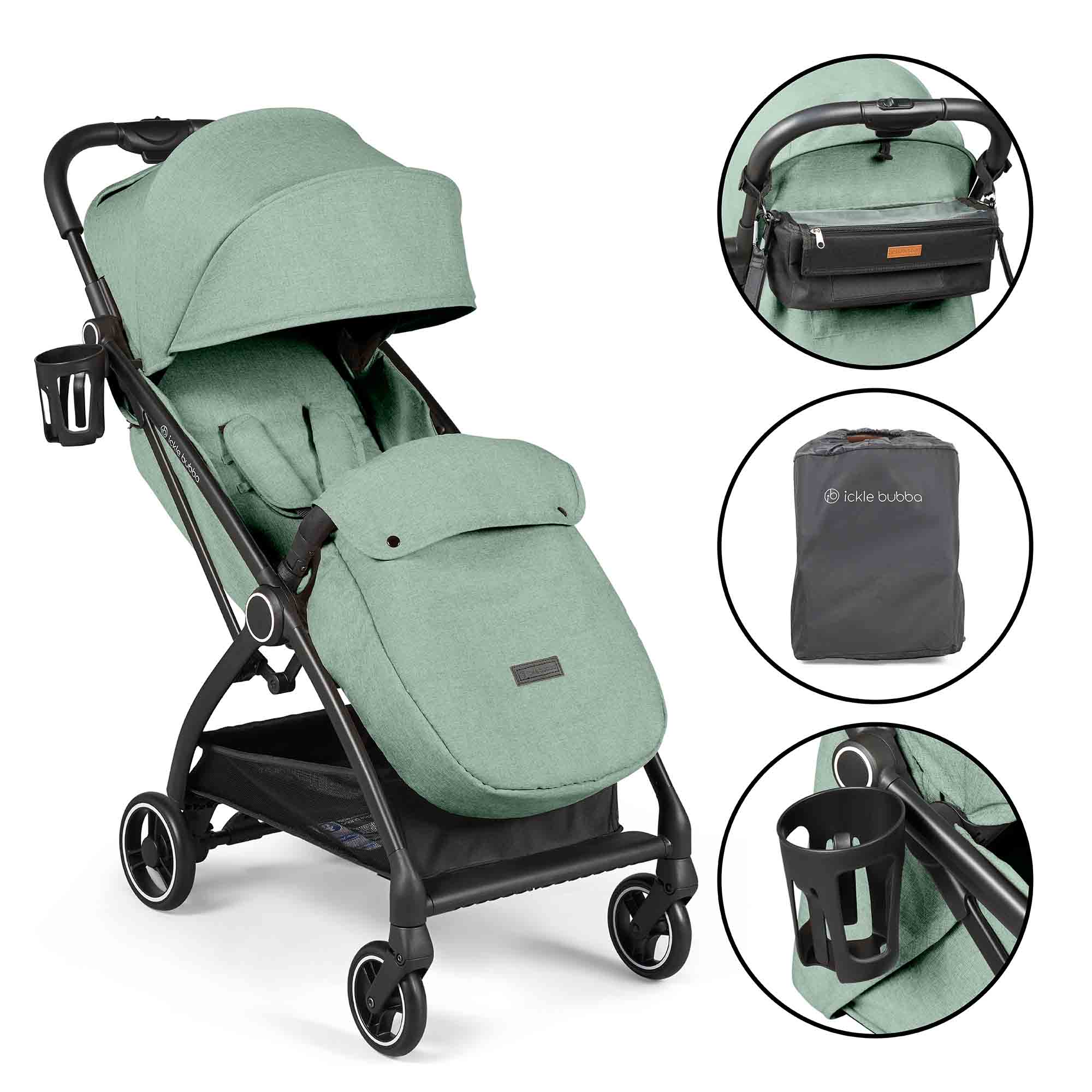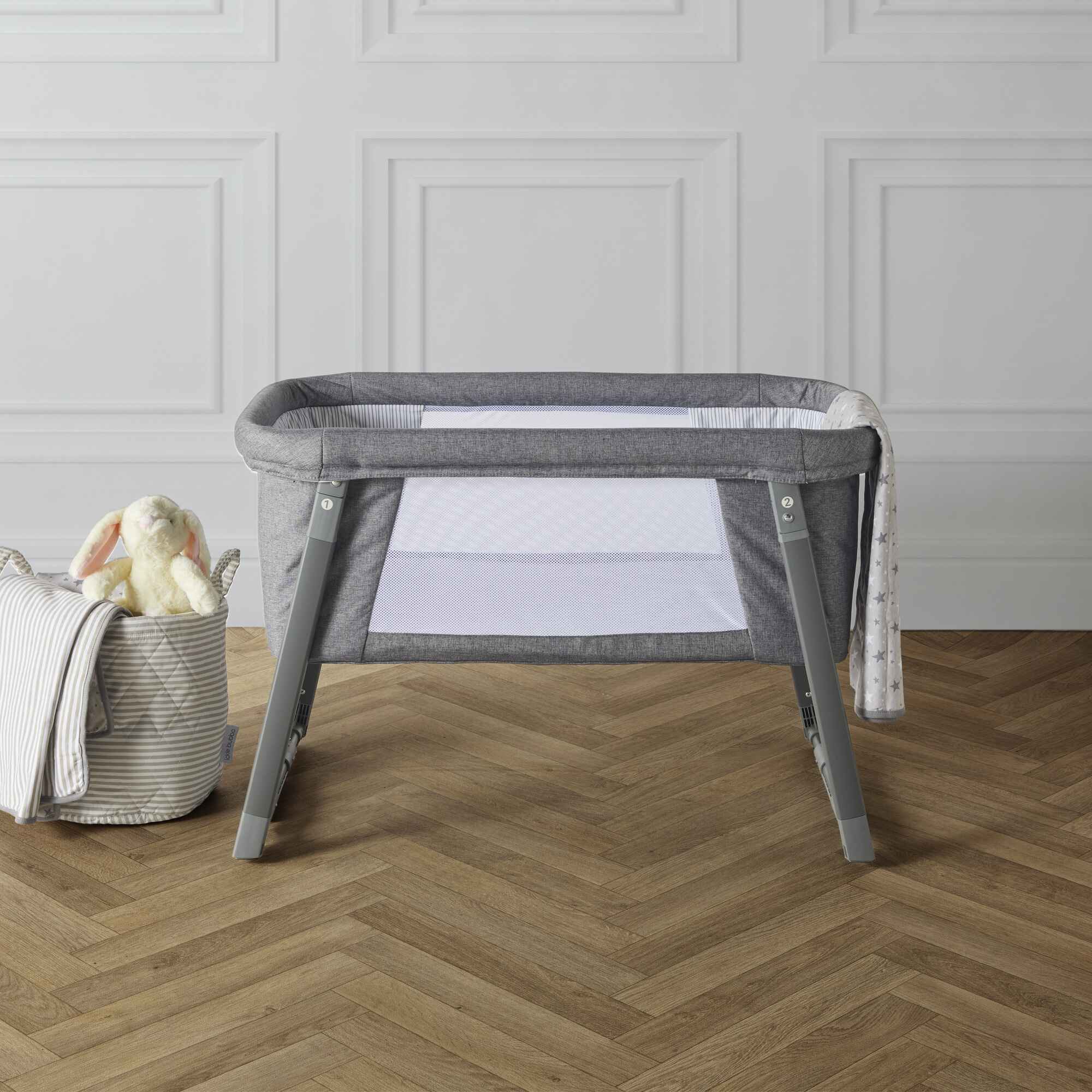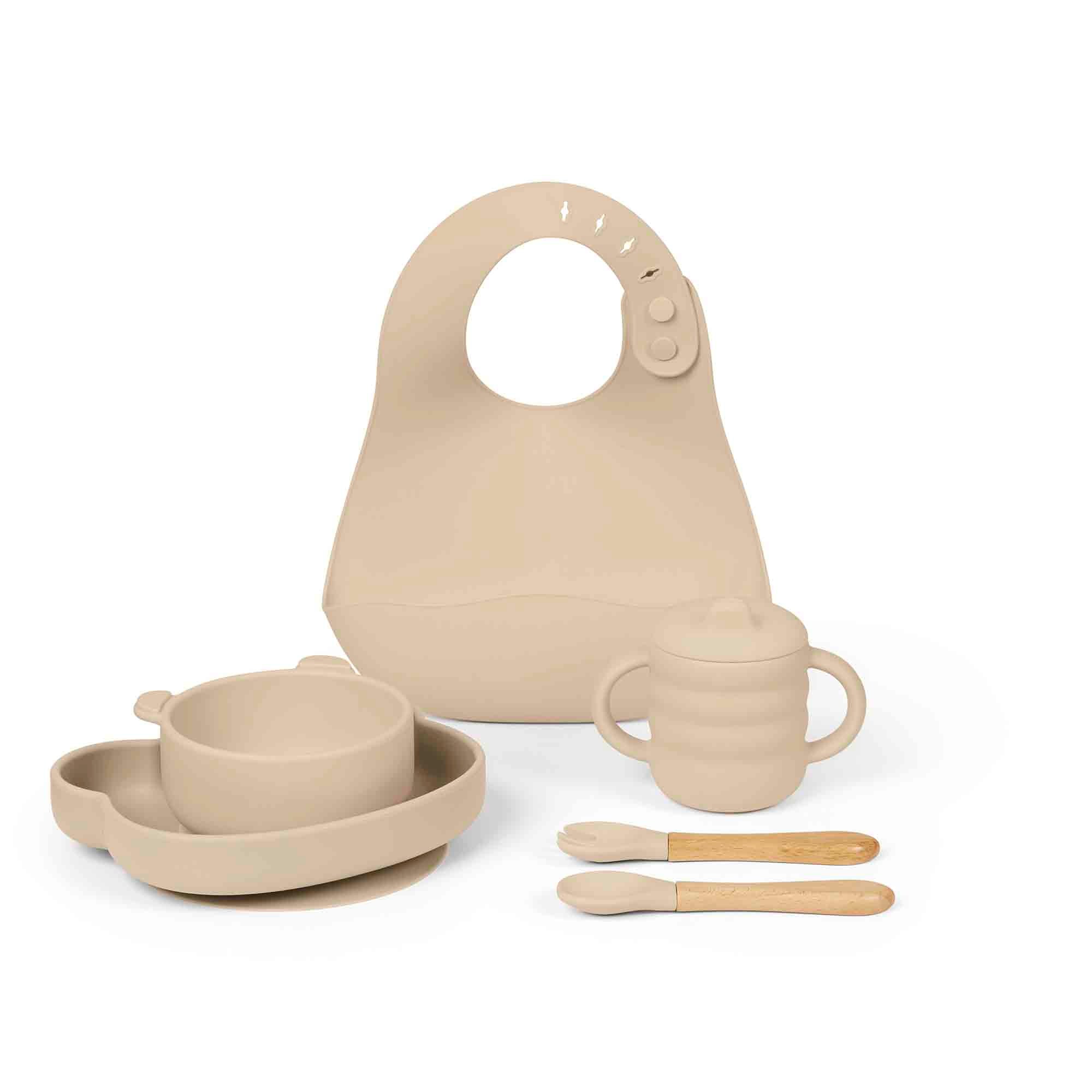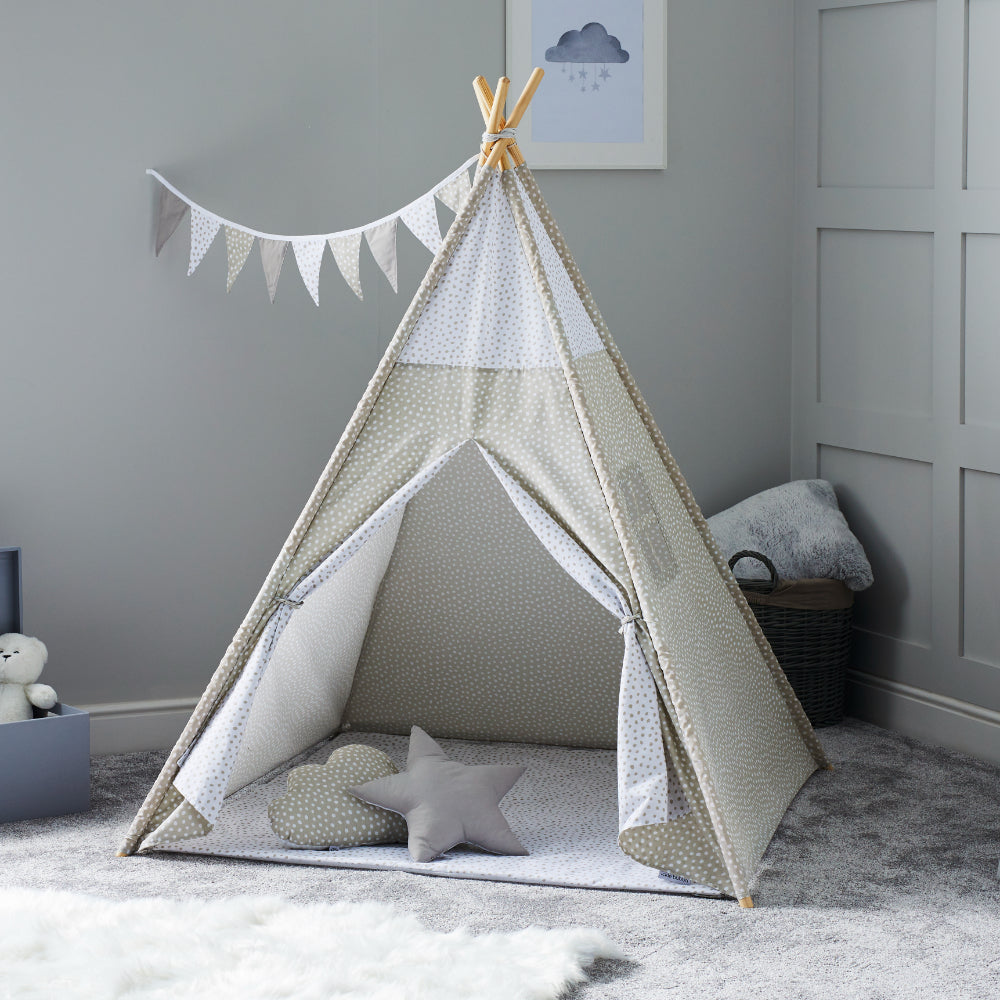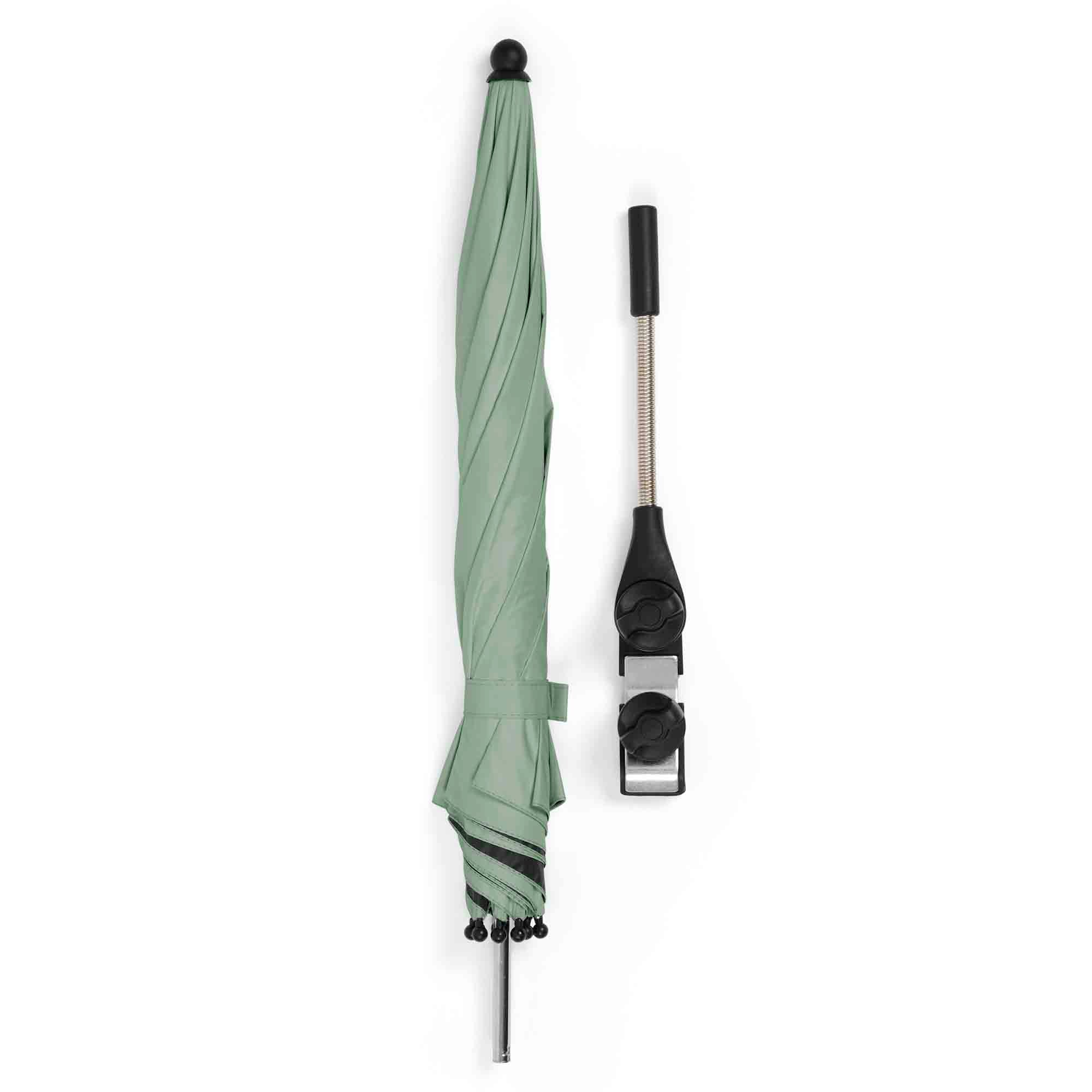Budgeting for Maternity Leave
Interview with Financielle
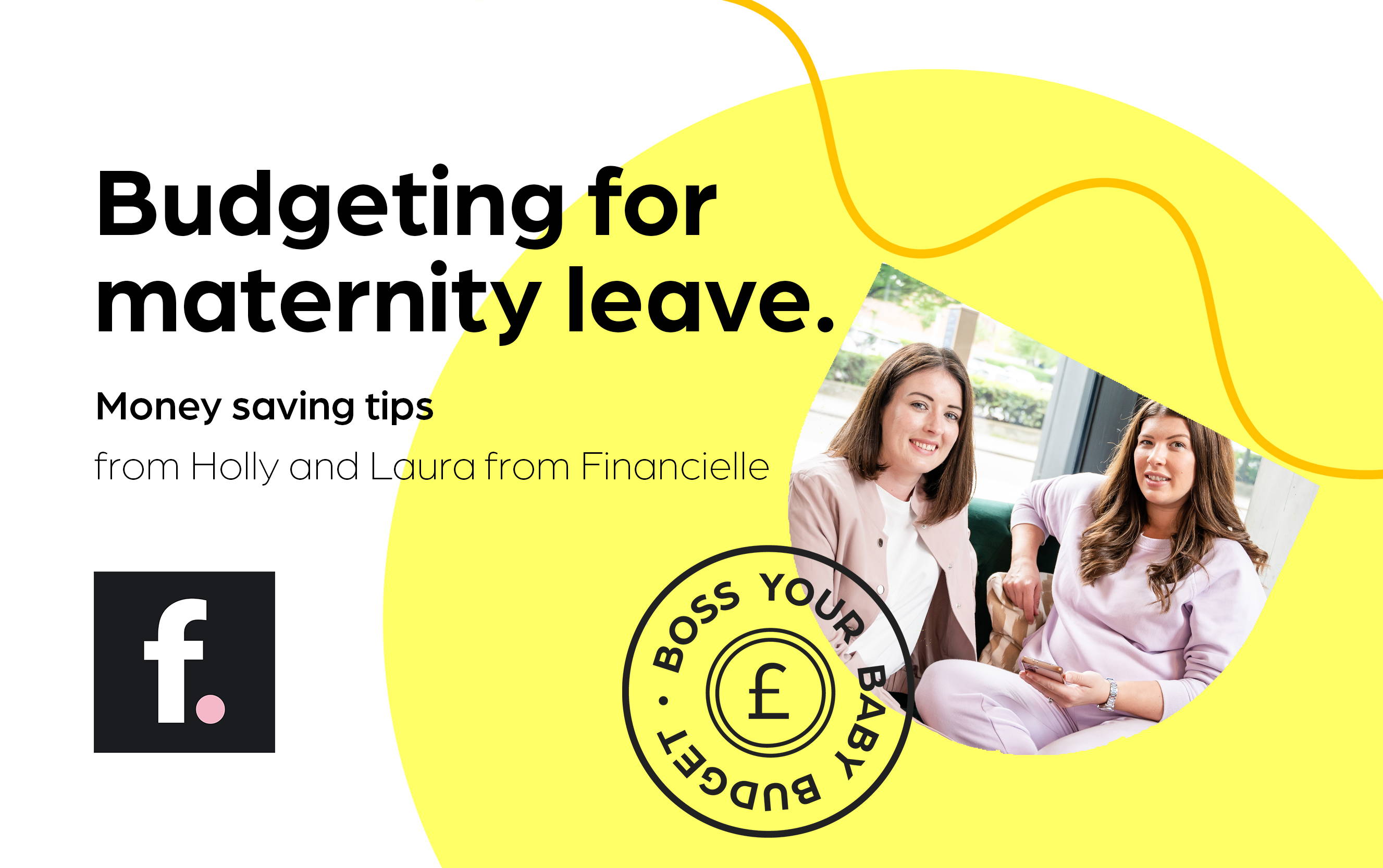
We're continuing our mission to help new parents maximise their budgets and get the most for their money. As we all face trickier times and tighter budgets, no one wants to miss out on making the most out of their new arrival. So, we're helping parents to find ways to push their pennies that little bit further...
One way we're doing that is speaking to the people who really know their numbers, like Holly and Laura from Financielle. Two sisters and mothers who co-founded an online financial community and budgeting app that helps empower women to make smarter money choices and budget for life's big moments. We spoke to the ladies to get their top tips for budgeting for maternity leave and how to shop smartly for baby on a tight budget.
Watch the video or read the transcript below:
We always like to start by giving a little intro to what our guests do, so please can you ladies introduce yourselves; how you came to set up Financielle and what it’s all about?
Laura: Absolutely. So, we’re sisters and co-founders of Financielle. We founded a female-focused finance app that’s freely available in the App Store. We did it to plug the gap of advice around managing money as a woman and highlighting some of the extra things we need to think about – like financing on maternity leave. It started as an Instagram community four or five years ago and we’re now up to 6 thousand users on the AppStore.
So, it sounds like your app is great for helping us all take control of our money and understand our incomings/outgoings and how to manage those in a really simple way. When it comes to having a baby though and thinking about maternity leave, I guess that’s when our spending habits and what we would usually expect to earn are thrown out of the window…
Let’s take someone who may have just found out they’re pregnant or planning to get pregnant. What would be your first bit of advice be for them?
Laura: So, having been through this recently – I’ve just had baby number three and I went through the same with baby number one – let’s be clear: were not all going to have the same maternity leave as Molly Mae! It’s a different budget. I think that’s the first thing to remember – there’s lots of excitement in the early days and we can all get a bit carried away, but it’s important to take a step back and take some time to put pen to paper and create a plan. You’re making two big budgets really – one of them is the baby budget: so what you think you’re going to need to look after the baby, whether that’s a little box for baby to sleep in, which I think they do in Sweden or Scandinavia…
Holly: I think they do a box of essentials or something similar in Scotland…
Laura: So, sorting out the basics of what baby needs versus what’s aspirational, like what sort of nursery you’d like, what kind of pram you’d like, etc. Write it all down and cost it all up. Once you do, it will start to feel overwhelming but at least you’ve got a starting point. Whereas if you just go in blind and start picking things up and buying stuff online, suddenly you won’t know what you have and what you need – and there might be something really important that you’ve missed.
How about for anyone who has found out they’re pregnant further into their pregnancy without the time to plan and save? I guess for those women, they may feel a little more panicked about how quickly their due date is coming around and how little time they have to prepare financially…
Laura: We advocate for financial modelling, as we call it, but I don’t want people to be put off by that. It sounds like something you’d need a financial advisor for, but really, it’s something you can do with a piece of paper and a pen. So, let’s say you find out that you’re five months into your pregnancy, you’ve got around four months left. You can literally write down what’s coming into the household, what’s going out then think about if you can squeeze what’s going out? So, can you flex down on your shopping budget for example? Can you start shopping at Lidl instead of M&S, can you meal plan, can you use a slow cooker – all those things can help you to squeeze your budget a little more.
You want to create something called ‘an excess’. It’s a bit like a really simple profit and loss account. You can run your household budget like you run a business. So, what have you and your partner, if you’ve got one, got coming in and what is going out? And anything that’s left can be put towards a savings goal. So, for example, if you’re not fortunate enough to have a good maternity package at work – which I think is most people in the UK – you’re going to be getting statutory maternity pay. Model what that looks like. What’s your income when you have your full salary before your maternity leave? Model what it looks like when you get statutory maternity pay, I think it’s after six weeks that you go into SMP. What does that look like and what do you need to save? Because you’re going to have a gap, because you’re being paid 75% less and you’ve still got your outgoings. You’ve still got to pay your mortgage, council tax, possibly a car… and then you have extra things like baby formula, nappies, wipes – things that you didn’t have to pay for before. So, arguably, we’re paying out more with less coming into the household.
So, it’s all about financial modelling but I don’t want that to scare anybody. It’s so simple. And if you’re fortunate enough to have a partner on this journey, do it together. We call it a financial date night. We’ve got a lot of people in our community that absolutely look forward to it, because it means they can table some of the things they’re worried about.
Laura: And on that, I think this is a really important point, if you’re not in a relationship – and I’ve been in that situation when pregnant – it is a bit more traumatic and stressful. You’ve got a different money conversation to have, however there are still two people having a baby. When you’re in a relationship, sometimes the mother’s mindset goes straight into preparing but you’ve got to go on that journey together. And there’s two sides to this: I’m not going to say that the person not having a baby is going to be a bit careless but they’re not going to be as focused or mindful. They won’t know about maternity clothes that don’t fit…
Holly: Maternity pads – as we all know, you go through 12,000 – or nipple cream, and that’s a cost every single time…
Laura: And the other side is – sometimes the person that’s pregnant can get carried away and wants to buy everything and wants to do Zara hauls or H&M hauls. By the way, everyone buys far too much for the newborn stage even though they grow out of them quickly. So just having that mindful partnership conversation about it together – saying ‘we’re in it together how much money do we need?’ And asking what’s a ‘want’ and what’s a ‘need’.
Something that we’ve found good in a situation like that, if you make a list of what you need for baby, try and prioritise them in terms of importance but also timing. Because for someone that’s found out they’re pregnant a bit later in the journey, and they feel they’ve got less time, a nursery isn’t a priority. We all like having the nursery done, but genuinely, if you’re feeling up against it and feeling pressured then it’s up to you to prioritise because a car seat is more important to get a baby home from hospital. Those immediate newborn basics which you might not want to do second hand are priority, and as you get further along the journey the ‘nice to haves’ like the nice sleigh cot that they won’t sleep in until they’re six months aren’t. That’s a good example of wants and needs.
I totally agree. You know how you mentioned budgeting on paper, does the Financielle app have tools help you with that?
Holly: Yes! If you want to model a budget, our functionality allows you to do it on the current date, but you can also model what it looks like in six months’ time. So, in six months you can see you’re going to get this much into the household, and these are your usual outgoings. And you can flex and change all those moneys coming in and out. It’s all about planning ahead. A lot of those budgeting apps out there will tell you how you spent your money after the fact. But that’s not budgeting that’s reporting. They will say ‘you’ve spent too much in Costa, Zara – whatever’ I don’t need it to tell me after the fact. This is all about planning and controlling what you can control. And you can control it a lot of the time, we just don’t realise it because pregnancy is such a messy time.
Laura: There’s a really good free tool called a ‘Money MOT’ and it removes the overwhelming stuff, because it can be overwhelming. But it takes things one step at a time and there are 30 steps. I think we ran it as a challenge one November and there were 30 days, so we just ended up with 30 steps. But now people go to the app and work through their budget line by line, so if you do want to cut back or optimise your expenses so you’ve got more money to save for baby, that’s a really good place to start.
Brilliant. It sounds way more familiar than opening a spreadsheet and starting from scratch. Especially if you’re not very financially inclined. So that’s really helpful. Obviously, you’ve already mentioned that people are entitled to different kinds of maternity pay but once they’re on maternity leave – I know you’ve alluded to benefits in the blog – but have you got any top tips on how you can enhance that maternity pay or what you can potentially claim?
Laura: So, I think the first thing to start off with is that partnership point where if you are in a relationship, really think about how finances are combined. You don’t need to combine bank accounts but it’s easy for the person not on maternity leave to not consider the costs associated with having a baby and being on maternity leave. So, this idea that you might have put 50% of your wages into a joint account and then suddenly you’re off for a period of time – don’t stay silent on that. Do the maths and do it early and be collaborative. Treat it like a business decision. Why should one partner go without?
The other thing to bear in mind, and we’re quite passionate about this, is why should a woman not receive pension contributions for the year when she’s on maternity? What happens is, the person not having the baby stays at work and they continue to get contributions from the government and their employer through their salary, whereas the person on maternity leave will get a tiny contribution because they’re on statutory or they’ll get zero contributions at different points. So, really have a conversation about that. We’ve established that you should include the person on maternity leave’s pension as an additional bill and include that in the budget, so that the woman doesn’t miss out.
We’ve actually had different experiences on this. When I was on maternity leave, and this was before we started the Instagram page years ago, my husband and I sat down for baby number two and agreed an amount that we put in for my pension. And I was the main breadwinner, so it wasn’t like I was used to having less income. I had a higher income and was taking a big drop. So, we decided, and we were fortunate enough that we had room in the budget at that time, to do that. Whereas you didn’t did you?
Holly: No, only because I wasn’t aware you could do it, and I didn’t realise I wouldn’t be getting paid pension contributions when I was on maternity leave. It’s not something that’s really discussed, even though we had a good HR team. No one ever sits you down as soon as you first tell work that you’re pregnant and says, ‘OK, so what are we going to do about this gap that you’re inevitably going to face when you’re on maternity leave?’
My husband had a really good paternity leave deal where he got paid more in his six weeks off for paternity leave than I did in two years of maternity leave, and in that time, he still got paid pension contributions. So, I’m two children down and two years out of my pension as well. It’s really unfortunate that this isn’t something we’re taught in school or the workplace. If someone is at home thinking ‘oh my god, I’ve had three children and I didn’t even think about this’. It is completely normal. This is a very strange conversation to be having, it’s just not being had.
Laura: So, having that chat with your partner or your family, if they’re around, is really important because that’s the stuff you can control. There’s a lot of stuff when you’re on maternity leave that you can’t control but this is something you can control. So have these open conversations about ‘should bill contributions change during that time?’ And also genuinely look at what maternity leave does cost. So, people might roll their eyes at mums going for coffee or a mum not having enough money to do that. But I’m sorry, if you’re at home for 12 hours with a baby then for your own mental health then going for a walk and a coffee can make or break you personally. There are also baby classes or baby swim, and often we speak to people on maternity leave and find out they’re paying for it in isolation to the person not off. So again, I’m labouring the point but it’s really important to control what you can control.
The other important thing is heading to government websites and looking at what you are entitled to. Obviously, your wage comes down massively because you’re on maternity leave that’s not supplemented. There are lots of different things to look out for. It used to be child tax credits but now it comes through universal credit. Child benefits are something you can claim and you can go back, I think, three months. So, even if you don’t get your act together when baby is first born, I think the minute you have the birth certificate you can apply and get paid retrospectively for three months, so don’t lose out on that.
And then there’s other wider maternity benefits, like making sure you’re getting your free dentist check-ups. I know it’s hard work getting a free appointment at the moment but that is all free on maternity leave. I had a really good dentist the other week who said, ‘Right what can we get you because you’re off and it’s all free?’ So, I said ‘do you do Invisalign?’ And he laughed and said that’s too far! But it helps for things like during pregnancy, I was grinding my teeth, so they said, ‘we’ll get you a gum shield.’ They will help you out because it is complementary while you’re on maternity leave.
Our articles should help with all this, and there are some really good ones on the government website that help you find what you’re entitled to. Find that out early because as Holly said, if you do it on a piece of paper or do it on our app, you can plan out your prospective budget and you’ll be able to build out what income looks like when you’re on maternity leave and what costs look like.
That’s all great advice. And I think, like you say, this stuff doesn’t come to you, does it? You’ve got to go out there digging because the government doesn’t want to hand out all this money. They want you to find it.
Laura, you mentioned that you’re on maternity leave at the minute - although you’re doing this for us today, thank you – but I imagine it’s a bit different having a baby third time around? You probably have most things but what have you learnt about budgeting for baby now you’ve had three?
Laura: So, on that, I’m working today because my partner is on shared parenting leave today. He’s having a great time. He’s watched I Am Celebrity reruns because we’re too old to watch it live now, and he’s gone to the hairdressers and taken the baby. He’s made for paternity leave. But we had a conversation with him early on because Holly and I have started this business and, while I’d like time with the baby, I don’t want to take too much time away and my husband has had conversations with his employer, and we decided to share it. Although, I’ve worked out that he’s off full-time during the World Cup, so I feel like he’s done well coordinating November and December off!
But financially it’s a such tough time and it’s really easy for someone that’s had baby number two and number three to say, ‘Oh you don’t need anything new. You don’t need this. You don’t need that.’ because when you’re in the position where it’s your first baby or its your first boy or girl if you’ve had a different sex, then you do want to go all in. What we say is you have to give yourself permission to spend, but when I said about sorting that priority list – think about the things that are really important to you. Baby’s first outfit is always a really big deal and the pram was a really big deal for me. But you can get carried away - you go to baby shows and try them all out and get over sold. The pram that I use, we bought for baby number one 11 years ago – it’s a Bugaboo Cameleon – but we just get it reconditioned and cleaned for about £150 for each baby and I’ve still got it. It’s still squeaking a bit, but everyone thinks it’s a brand new pram and it’s nearly 12 years old. It’s just having an open minded view on these things – just because something’s pre-loved doesn’t mean you’re giving your baby any less. Lucky for me, baby number three was a boy, and we already have boys in the family – Holly had two boys – so now I have a little boy who’s in the most amazing clothes. H was in a 0-3 coat this morning, I’m not sure who gave it to us to be honest, but it looks brand new, and he’ll probably grow out of it next week. So, you can go all-in for these impressive products that they grow out of, and you end up grieving for and thinking ‘he barely got to wear it’. So have the confidence to embrace Facebook Market place and Vinted and accept that it’s really good for the environment and really good for our bank balance. It’s only after that wave of excitement that you suddenly think ‘let’s be sensible about this.’
Holly: I love a shared spreadsheet. I remember you doing a shared spreadsheet with your second daughter and people would be on the family WhatsApp group going ‘does anyone know where the crib is?’ because we’d share it between friends. And I get it, you want to give your children the world. And with a first baby you want to and sometimes have to buy new items. But sometimes family members want to buy things. I remember our mum being passionate and saying ‘I want to buy you your pram’ so you can save those nice to buy things for family members - brothers and sisters – who might want to buy that and gift it to you.
Laura: And on that, when it comes to people buying you things that just aren’t to your liking… there are two things you can do: one thing is If you push out a list early and say ‘times are tough and we’re going to be sensible and buy these things for baby, if you’re going to buy baby something or put towards something together, please buy these...’ It’s like a baby gift list. It’s not pushy to do, it’s helpful for people. The second thing is, if you get something you don’t like, swap it immediately. Do not feel guilty. They’ll never see baby in it so just say they grew out of it. Because you’ll get duplicates or things you don’t need. And otherwise, it’s a waste. It’ll end up going into a landfill so return it instead. Holly always says, ‘send it back – take it back to Next. Go get something you like.’
I think that’s a really good point. I’ve got friends who swapped things round and we had a similar WhatsApp chat going on, but you also made a good point that if you buy well, you can make that last for 11 years like you have, which is amazing!
So, once the baby list of essentials is nailed then, what would your advice be when you go out to shop for these items that you definitely want to buy?
Laura: A little bit like we talked about earlier – finances can be like running a business and I feel that if we were paid to look after our finances, we’d do it a little bit better. And it’s the same with a budget. So, make your list.
I made a Google Sheet and created a list of essentials and then you can start to look at what you already have, what someone else in your friends and family circle has. And again, be really good at using it for the time you need it and then offering it back out, That way, one: you’ll have a lot less clutter and two: you’re putting it back out there. So people are happy to lend because they know they’ll get it straight back.
But make a list and figure out what you already have. There will then be a gap of things you need to buy. And with every single thing – especially the more expensive items – every penny counts because if you save money on one thing, you can put it into another. So, it’s about going down the list line by line. For example, if you need to purchase a pram, you have to act like you’re being paid to find the best deal for that pram. There are always discount codes, there’s always Facebook Marketplace you can have a look at. For something as big as a pram, you may want to go have a look first before you’re ready to buy, because you may find a £1000/£2000 pram for half the price so you can put that saving back in your budget. That’s what we believe.
Tackle things one at a time and do it early enough because you don’t want to be doing this with a newborn baby. Go on Instagram and ask your followers ‘what formula did you guys use for your baby?’ and you can gather intel, so you’re not panic buying the most expensive thing the first day that baby is born because you’ve not made that decision earlier. The more decisions you can make ahead of time, the more you remove the feeling of being overwhelmed.
Holly: Share the list as well. Don’t let that be a burden on just the pregnant person. That’s something Laura did really well, delegating and sharing. So, if someone wants to geek out on the ergonomics of a pram, which my husband loved – the wheels, does it go up and down kerbs, etc. – all the things I arguably should have thought about because I'd be using the pram on maternity leave, he went and geeked out on. And that’s fine because it delegated it. Whereas my thing might have been ‘I want to find the best bottle’ because my first child suffered with colic and I don’t want to go through all that again where you’re up in the middle of the night YouTubing and Googling and all that stuff. So, yes, make a list you can delegate and share. And like Laura said, sign up to loyalty programs. If you sign up to someone’s newsletter you might get 10% discount – always search out those things.
Laura: Black Friday’s coming up, what’s your list for Black Friday? Check the prices now and check what they’re going to be then take advantage.
Definitely! So once baby’s here then, how would you go about breaking down your weekly and monthly budget?
Laura: There are a couple of things here which should hopefully help people. In the app this is how we do it, but you can do it on a piece of paper. Firstly, do that work to nail what the income is going to be once the baby is here. Also account for changing income – it’s something like six weeks at 95% pay and then it drops to statutory, whereas some people have enhanced maternity pay, and sometimes work gives extra benefits and gift vouches. So, nail down as much of your potential income as possible - benefits, entitlements, anything! Even those people who will get child maintenance as part of their pregnancy - put it at the top of your budget and have this really fat figure that you can use for maternity and then you go through your expenses in three categories:
One is fixed expenses. So, all the direct debits, rent, mortgage, council tax, Spotify, Netflix – anything that’s a consistent figure, put that in.
Two is your flexible expenses. Things like your groceries, money for eating out - some people want a baby fund, an amount they can spend every month on baby, whether it’s for an activity or an outfit or a swim class.
Three is a bit difficult for maternity leave but it’s called sinking fund. We teach people to save for these big expenses that come up every year, instead of putting it on a credit card or getting stressed and using up your savings. For example, for something like your MOT, if you can put £10 to £20 a month aside for your MOT, when it’s due you don’t get annoyed that you’re dipping into your savings. It’s the same for Christmas. Christmas on maternity leave is quite stressful - you’re on less income, you’ve got a child in the family, you might be entertaining more. If you can, try to plan ahead for this Christmas and next Christmas, which might be baby’s first proper Christmas – the one where you want to dress them as an elf and enjoy the pictures. Plan for it because you get this guilt free time when the money’s there and that goes in your budget as a monthly amount. Say, for example, you’re 12 months out from Christmas and you want to spend £1200 during that period. That’s £100 a month that needs to go into the budget. And again, in the whole budget, not just for the person on maternity leave.
Once you’ve done that, the next hack we want to share with you is for when you’ve decided these little amounts like eating out, coffee, groceries, beauty – whatever it is. If you use a bank like Monzo, Starling, Revolut – any of these banks that have the ‘pot’ functionality - the best thing to do is divide your budget up into the pots you’ve agreed on. An example of that is if you have a coffee budget which is £50 a month, that’s ten coffees a month, not a huge amount. But if you’ve put it in your ‘coffee budget pot’, you’ve already given yourself to permission to enjoy that coffee. So, when you’re coming up to Costa and you want a coffee, you don’t feel that guilt of ‘can I afford it? Should I treat get something?’ You can actually say ‘Yes, I’m going to treat myself!’ Then you move it from the pot.
It’s the same for eating out. If you’re trying to be strict on maternity leave and you’re staying home and trying to be tight with money, then someone says ‘do you want to come for a burger or lunch, or we’ll go get Sunday lunch as a family’ you can. If it’s already in that pot and it’s in the budget then it’s already decided for you, so you can dip into it without feeling like you’re overspending. I think it’s really helpful for when you’re on maternity leave because everything seems to be tighter. In our community, we help people pay down debts so they can save, buy houses, and invest. The biggest thing during maternity is…
Holly: Survival.
Laura: Exactly! It is! It’s about not adding more debt because we’re probably not going to hit our financial goals during maternity leave. It’s probably going to be an overwhelming time, so be patient with yourself. But that doesn’t mean you want to go backwards. So, some of these hints and tips can help us to have a fulfilling maternity but without looking back on that time and feeling like you’ve gone backwards financially. The system’s set up for us to go backwards, so we’re doing what we can to help people maintain where they were.
That’s great advice! And it’s really good to know you’re here to help mums that aren’t just on maternity leave but also working mums paying for childcare – so all your advice goes further than just what we’re discussing today.
I think it’s really important to recognise that times are tougher than normal at the minute. There are probably people following along who are worried about money in general, so what would your top advice be for those people feeling anxious about it?
Holly: I think there’s a lot of things going on in the world that we’re not in control of, so our biggest message at the moment is control what you can control. And that is doing things like creating a budget. A lot of people avoid doing them because they don’t like dealing with the numbers. I’m not a numbers person generally, and I know people will ask ‘why are you in this business then?’ but that’s probably why. Because I’m not very good at the numbers so I’m looking for what else I can control. And it’s about knowing the numbers, not necessary playing around with them. A lot of people bury their head in the sand, especially when you’re hearing negative things on the news, in newspapers, on the radio and when politics continues to be crazy. We can’t control any of that. We can’t control tax rates but we can control what comes into our households and what goes out, and how we can plan ahead and discuss it with our partner when we’re feeling stressed about money. These are all things in our control. So that, for me, is the most important message in this cost of living crisis that we’re going through.
Fab. You’ve given us some amazing advice – thank you so much, ladies.
For a whole host of budgeting tips and expertise, make sure to give Holly and Laura a follow on Instagram - @financielle. You can also download the Financielle app now via the App Store or Google Play.
And don't forget, Holly and Laura have created a free E-Book to help Ickle Bubba customers use their Free Money MOT.

